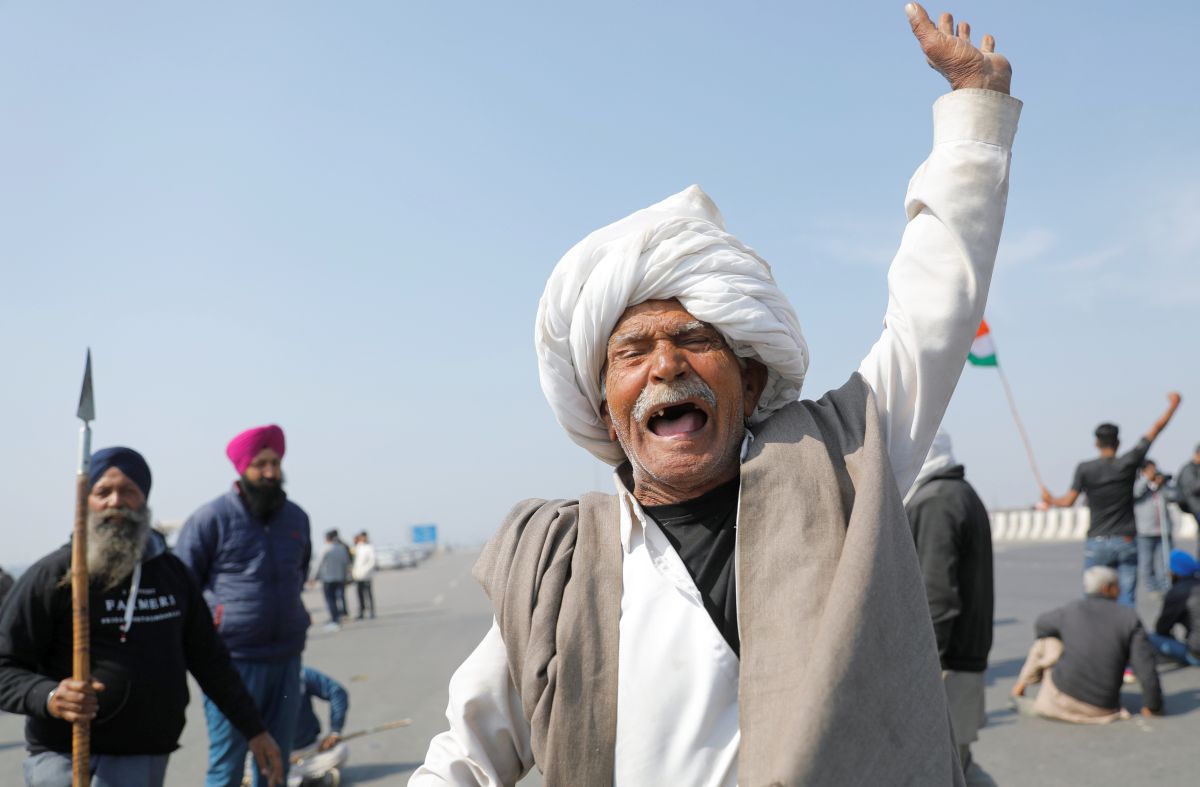Chandigarh | August 10, 2023: In a remarkable demonstration of unity, farmer leaders and khap panchayats in Haryana recently convened in Baas village, Hisar, to condemn communal violence and ensure the safety of the Muslim community. The event, attended by approximately 2,000 farmers representing Hindu, Muslim, and Sikh communities, marked a significant stride towards reestablishing peace following the recent turmoil in the Nuh district.
The atmosphere brimmed with determination as farmer leader Suresh Koth, a prominent figure in the farmers’ protest against the three farm laws, addressed the assembly. He emphatically proclaimed, “Ye khade Mussalman, tok ke dikha do. Saari khapen jimmewar hain” (The Muslims are here. No one can touch them. All the khaps are responsible for their protection). Koth’s words reverberated the sentiments of unity and safeguarding that reverberated throughout the event.
The recent communal violence in the Nuh district catalyzed this gathering, redirecting attention from a forthcoming convention focused on agricultural concerns to addressing the pressing necessity for communal harmony. Allegedly, several village panchayats had passed resolutions prohibiting the entry of minority community members, raising apprehensions about social integration and harmony.
During the assembly, farmers spanning different religious affiliations pledged to refrain from any form of caste or communal violence, dedicating their endeavors towards reestablishing peace in the Nuh region. The gathering also urged action against those culpable for inflaming violence via social media platforms.
This is a significant display of unity, particularly against the backdrop of the farmers’ protest against the three contentious farm laws. The farmers’ movement garnered widespread support across diverse communities, evident in their observance of festivals from all religions at protest sites like the Khatkar Kalan toll plaza in the Jind district. The all-encompassing nature of the protests witnessed farmers engaging in festivities, partaking in Eid-ul-Fitr prayers, and fostering a spirit of communal harmony.
The farmer leaders’ commitment to ensuring the safety and inclusivity of the Muslim community stands as a potent testament to their unwavering dedication to a united Haryana. Their proactive stance against violence and division reflects the broader aspiration for peaceful coexistence, transcending religious delineations.
As the farmer leaders stride forward to champion communal harmony and denounce violence, their actions reverberate a resolute message: Haryana’s resilience lies in its diversity and its future pivots on unity that eclipses disparities. This event shines as a beacon of hope, illuminating a trajectory toward a more harmonious and inclusive society where the dignity and security of every citizen remain safeguarded, irrespective of their origins.









